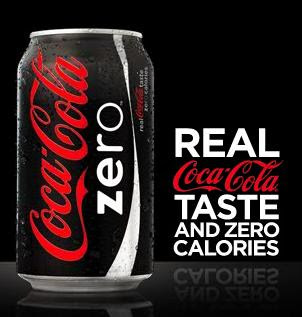
Having trouble putting together the two ideas of "cap" and "trade"? Check out this NPR segment, replete with a clip from Dude, Where's My Car?, that compares cap and trade with a hypothetical system for limiting the usage of the word "dude." I'm not really sure this simplifies the concept, nor that it even needs simplification.
As far as dude examples go, I much prefer...well, the Dude, not the millionaire, duder, his dudeness, or el duderino, if you're not into the whole brevity thing.
Regarding the below, this is really the better video, but the title is not family friendly.
 I had MSNBC on mute and glanced over to see a headline, "Coke Zero Banned in Venezuela." I couldn't resist. Yes, it's true. As the Health Minister said, "The product should be withdrawn from circulation to preserve the health of Venezuelans."
I had MSNBC on mute and glanced over to see a headline, "Coke Zero Banned in Venezuela." I couldn't resist. Yes, it's true. As the Health Minister said, "The product should be withdrawn from circulation to preserve the health of Venezuelans."
What strikes me as odd is that they banned Coke Zero, not regular Coke. I wouldn't say that Coke is dangerous (I don't care to tangle with Coke's lawyers), but I do recall it chewing through some nails in science class. Perhaps those corn syrup commercials are really effective in Venezuela. Or maybe it was just lost in translation, zero coke(aine)?
The House Appropriations Committee released budget allocations (the 302Bs) to each subcommittee today for the FY10 budget. The number for State-Foreign Ops, $48.8 billion, is disappointing, nearly $5 billion less than what the President requested and certainly not enough to fulfill his committments to Foreign Aid and the Foreign Service.
On top of that, CQ is erroneously reporting that the subcommittee is "set to receive significant increases above the current fiscal year's spending levels." That simply isn't true. They failed to calculate the significant amount included in two supplemental spending bills (we've been repeatedly told not to expect the same in the future), which brings this year's spending to roughly $50 billion and means the current allocation represents a significant contraction in diplomatic spending right at the moment when it is needed most.
If the $48.8 billion still seems high to you, you would be wise to keep in mind that it represents a only 1.4% of the total budget and just 7% of the total 'national security budget.' The Department of Defense was allocated $508 billion, $20 billion more than last year (an increase equal to 40 percent of the entire State-Foreign Ops allocation).
Clever, though, as Advertising Peanuts points out, it's not as clever during the day. Eskom is the government-controlled electricity provider in South Africa, where this message hits home.

I love me a good Yvo de Boer profile as much as the next guy, and I applaud any effort to make the complexity of the UN climate negotiations bite-sized, but the first line of this AFP article is ridiculous, "Yvo de Boer, it could be argued, holds the fate of the planet in his hands." Clearly I don't disagree with the implicit message that the success of the UN climate negotiations will greatly impact the fate of our planet but rather that, thankfully, any one man holds that fate in his hands, even the Secretary General.
The sad fact for news peddlers is that these agreements will be built (and I believe they will) through the hard-fought efforts of hundreds, if not thousands, of individuals. On top of that, any workable solution will be amazingly complex and incrementally build. Case in point: check out this NY Times piece on the pre-negotiations currently being hashed out by China and the United States. Congressman Markey, cosponsor of a House energy bill that the article notes calls for 1/10th the reduction in GHGs that China is asking for, is quoted as saying, "This is going to be one of the most complex diplomatic negotiations in the history of the world." True.
Mark discusses Canada's role at the UN, Security Council reform, and the Stanley Cup finals with Canada's Deputy Perm Rep.
Mark talks to the Millennium Campaign's Anita Sharma about the progress of the G20 committment to "social protection" of the poorest countries.
Mark talks to DPKO's Nick Birnback about in Darfur, Somalia, and DRC.